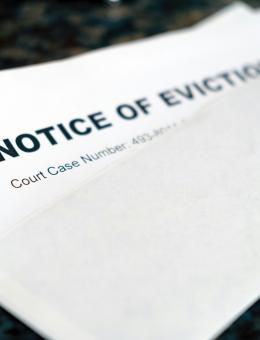
REFORM FOR EVERYONE’S BENEFIT, NOT JUST CYNICAL POLITICAL GAIN
Published 16 February 2024
After many delays, this week housing minister Michael Gove finally outlined a timetable for the abolition of so-called ‘no fault’ Section 21 evictions, confirming that the measure will be enacted before the general election, writes Phil Cooper.
This shouldn’t come as a surprise to landlords, as the policy was part of the 2019 Conservative manifesto. It is part of the wider Renters Reform Bill which has been considerably delayed but which looks like finally becoming law this year.
It remains to be seen how much difference the abolition of Section 21 will make, given that the majority of such evictions are down to landlords wanting to take back possession of their properties either to live in them or sell them – and this will still be possible under the new legislation.
Whilst there is no denying that a minority of landlords have abused Section 21, most of the remaining cases are evictions which might perhaps be more appropriate under Section 8 rules, designed to enable landlords to evict tenants who are not paying rent, who have caused damage to their properties, who have demonstrated anti-social behaviour, or who have otherwise breached their tenancies.
Why do landlords not pursue these evictions using Section 8? Because the process is lengthy, bureaucratic and expensive. In 2022 there were 31,000 outstanding cases awaiting resolution in the courts; in 2023 that number is set to double. Small wonder landlords take the simpler and quicker option of using Section 21.
The result is the same – eviction – but it does very much skew the figures and exaggerate the number of ‘no fault’ evictions, stoking calls for reform.
Alongside the abolition of Section 21, it is vital that the government improves the mechanism through which landlords can evict nightmare tenants. Those who simply don’t pay rent, or who trash a property, or who make neighbours’ lives a misery, should not have the right to remain in a property simply because the legal system can’t cope.
If Section 21 is abolished without reform and improvement of Section 8, many landlords will have second thoughts about entering the market, if they believe that getting their property back when tenancies break down is nigh on impossible. Ultimately it will be tenants who pay the price for that, with an even more restricted supply of properties driving up rents still further.
It is right that action is taken to prevent the small minority of landlords who abuse the system. But if the net result is penalising both the majority of landlords who act honourably and tenants themselves, then the reforms will have failed. The government needs to implement reform of the whole system to benefit everyone, not just an eye-catching headline policy which might win a few votes at the election.
Share this story
Arnolds Keys Blog

NORFOLK’S MARKET TOWNS EXPERIENCING BUOYANT DEMAND FROM BUYERS
9 February 2024
Quality of life is often cited as the reason that so many people want to come and live in Norfolk, writes Kate Gillard. Read more >

MASSIVE WAREHOUSE PREMISES AT SHIPDHAM COMES TO THE MARKET
29 January 2024
One of the largest warehouse premises to be offered to let in Norfolk for some years has been launched onto the market. Read more >

PROPOSED PERMITTED DEVELOPMENT RIGHTS CHANGES COULD BRING OPPORTUNITIES
27 January 2024
Government consultations on proposed changes to legislation such as the Town and Country Planning (General Permitted Development) (England) Order 2015 can sometimes be so dry that they pass many people by. Read more >

2024: PROPERTY FUNDAMENTALS WILL OVERCOME THE UNCERTAINTY
24 January 2024
January is traditionally a time for looking ahead, but as I said in this column 12 months ago, making predictions is a dangerous pastime at the best of times, writes... Read more >
